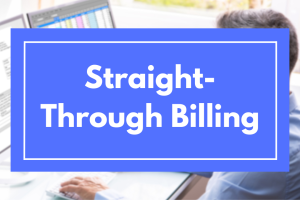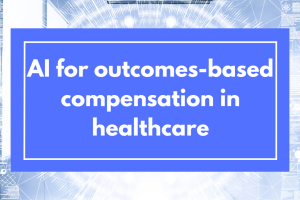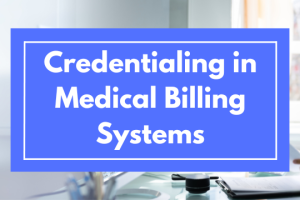Schedule A Demo Now
What is Payor Adversity?
Providers are inundated with options for who’s going to foot the bill. The payor is the entity that makes payment for the services rendered. This can be an individual (self-pay), employer, insurance company, or government program. Keeping track of all the payors and their role in the practice can take a lot of work. Anytime that a payor disagrees with a payment or otherwise tries to challenge billing practices, it is known as payor-provider adversity.
Private practices tend to deal with this much more frequently than large hospitals and facilities. Naturally, because the offices are smaller and have fewer resources, some may feel that they can get away without paying, or without paying as much as they should. In the past, this created an accounting and paperwork nightmare. Today, however, solutions are available that offer a digital paper trail, ensuring that private practices can fight back against payor adversity with the best tools.
How Do Physicians Get Paid?
Physicians get paid in several ways. If you’ve been in practice for any amount of time, you’re familiar with the common practices. Payments usually come in the form of reimbursements from a payor, and there are several different methods for doing this. Fee-for-service reimbursement is the most direct and often negotiated as part of a physician participation agreement. The base “plan” pays the medical costs and the payor here is responsible for processing eligibility, enrollment and claims, payments, and other services.
Other payment reimbursement plans include:
- Direct to employer
- Care coordination
- Quality incentives
- Bundled payments
- Shared savings
- Shared risk
- Full or partial capitated payments
With all these options, physicians have a lot of ways to get paid. However, that also means that they have several different situations where adversity could arise and a payment provider could balk at making payments. There isn’t a lot that can be done here without restructuring the entire A/R department, with the exception of enlisting the services of a dedicated EHR and billing technology.
The Challenges of Payor Adversity
The challenges of having adversity among payors are multi-fold. First and foremost, obviously, if payors are disputing bills or balking at payments, bills are not being paid and the practice is not earning money. The new influx of digital solutions has changed the way that healthcare is provided as well as the way that it’s billed. While many practitioners recognize the value of virtual healthcare and remote appointments, some are still balking at the drive toward digital solutions.
It can be hard to introduce new tools and solutions when you’re already dealing with challenges. When people don’t want to pay, for one reason or another, it impacts your ability to move forward and drive growth. Payor adversity also means that you have more paperwork to handle, more calls to make, and more follow-up that takes valuable time away from patients.
How an EHR Can Help Streamline Payments and More
Incorporating a tool like an electronic health record (EHR) and billing technology is one way to help improve payment issues, disputes, and even to challenge those payors who simply drag their feet and refuse to pay bills in a timely fashion. An EHR with practice management software is a digital platform, usually based in the cloud, that allows providers to manage all aspects of their practice from a virtual space. While this provides quick access to records and patient information, it also helps streamline billing and payments for fewer disputes along the way if your EHR has billing technology.
An EHR is designed to provide improved patient care and coordination, as well as improved practice operations and overall cost savings. Part of that cost savings comes from having a standardized billing practice in place and making sure that all documentation is available to hold payors accountable as needed. Another benefit here is that the payments can all be made digitally, which helps reduce the number of checks that get “lost in the mail” or otherwise missed by payors.
A practice management software gives you a record. It gives you a way to organize and standardize your practice. It helps you track what’s getting paid and what isn’t, as well as certain problematic payors that may show up in multiple places throughout your practice time and again. While you’ll still have to work to establish a solid payment process that guarantees your practice gets paid, doing it with a practice management software is much more effective.
How Can ClinicMind Help?
ClinicMind has a totally customizable EHR and practice management solution that includes training and support for all members of the practice. Our comprehensive EHR comes with dedicated one-on-one training that is included, not as an extra charge like you see with many competitors. Full-service billing solutions are available as well. We also have a host of resources and solutions to ensure that accounts are kept current, absent payors are notified of their balances, and that you can run your practice efficiently and without concern of whether you’re getting paid. We leverage AI technology so you benefit from every practice that has ever gotten a claim denied or delayed in our system. Our system checks your claims against all known past deny or delay reasons so you can fix it before you submit it to the insurance company.
ClinicMind makes it easy to track bills, payments, payors, and other financial details. Plus, we have a host of resources available to help you through the process. When you need assistance, you can call and speak to a real person about billing questions, how to maximize your success with payment solutions, and much more. We can even provide walkthroughs and offer various subject matter experts to assist you in anything that you need.
Conclusion
Dealing with payments is never a fun part of running a private practice. However, there are tools available today to make it much easier for you to get paid. With the right solutions in place, you will quickly see payment issues resolve themselves as your practice has a new digital tool to hold payors accountable. From insurance companies to employers and even your self-pay clients, having a dedicated practice management software will ensure that nothing gets missed in the A/R department. This will also guarantee that your business is more profitable and effective because you are no longer battling the payment adversity that many private practices experience.











